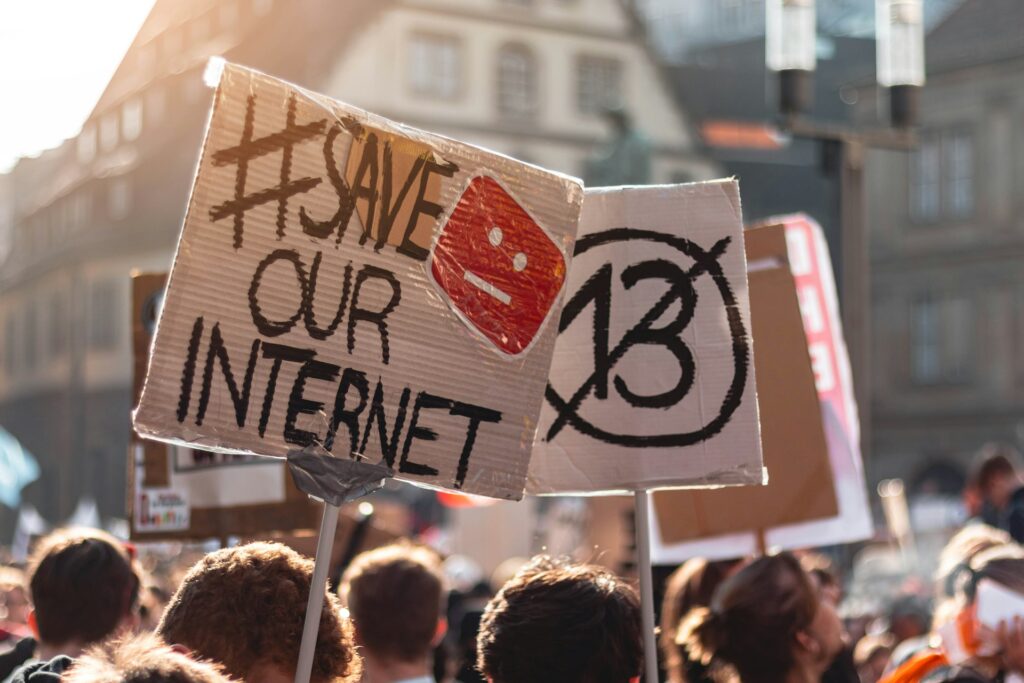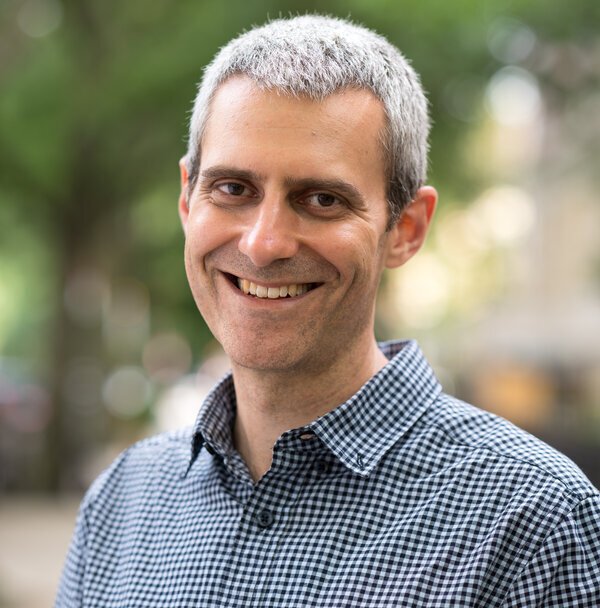At first glance, Estonia and Indonesia may seem worlds apart. But two big ideas that began life in this small Baltic nation are now making waves more than 10,000 kilometers away in a country with 200 times the population. ERR News’ Michael Cole spoke to Indonesian activist and organizer Agustina Iskandar Crombach to find out why she brought the Opinion (Arvamus) Festival and World Cleanup Day initiatives home from Estonia.

Agustina Iskandar Crombach with ther husband on World Cleanup Day in Bali. Source: Private colllection
In 2020, Indonesia’s ranking in the Economist Intelligence Unit’s (EIU) democracy index fell to its lowest point for 14 years. “The situation was not good,” Agustina Iskandar Crombach tells me when we speak on Zoom. “I read some research from a political indicator survey that said around 47 percent of Indonesian people were actually afraid to say their opinions or to criticize the government.”
It’s fair to say Iskandar Crombach was not part of that 47 percent.
Determined to change things for the better, she joined Citizen OS – a non-profit organization from Estonia aiming to strengthen participatory democracy and help ensure technology is used for good.
Through Citizen OS, Iskandar Crombach learned about another Estonian-born initiative – one she would eventually take home with her to Indonesia in a bid to improve the situation.
Matter of opinion
Described as “a meeting place for all layers of society, giving a platform for different worldviews,” the Opinion (Arvamus) Festival began in the Estonian town of Paide back in 2013. Now in its 12th year, the festival aims “to improve debate culture and civic education.” It does that through panel discussions about salient social and political issues, each involving people from different levels of society.
According to founder Kristi Liiva, the Opinion Festival is “one of the few places where people from government and non-governmental organizations, cultural figures, entrepreneurs, universities, journalists, citizens come together – they are all part of Estonia’s debate culture.”

One of the public discussions organised by Citizen OS at the Opinion Festival in 2018.
Iskandar Crombach was not able to visit Paide to attend the festival in person. Nevertheless, despite being thousands of kilometers away, she was watching carefully online and “learning from the way they do it” in Estonia.
“I really liked the idea of bringing people together and sitting down to discuss all these issues about what was happening in the country,” she tells me. “(Having) all the citizens involved in making decisions and pushing their government to make change.”
What impressed Iskandar Crombach most, though, was the willingness of top Estonian politicians to take part and have their views challenged by members of the public.
“The president (at that time Kersti Kaljulaid – ed.) was actually sitting there and you could discuss (things) with her,” Iskandar Crombach recalls with a smile. “Leaders should be like that – able to sit with their own people, discuss and hear clearly what other people need.”
Social hierarchy
Transferring the Opinion Festival to Indonesia while remaining true to its underlying ethos of free and open debate, however, was no simple task.
“In Indonesia, when we give people the space, they love to talk and say the things they want to say from their heart,” Iskandar Crombach explains. “But in our country, often, it’s very hard to get high-level people to talk to the citizens themselves.”
According to Iskandar Crombach, there’s also a deep-rooted social hierarchy in her homeland and most politicians, “are not really open and can be offended if we ask an open question.”
But she wasn’t going to let that stop her.
“I tried to convince (politicians) that this event is different and is also happening in so many countries in Europe,” she says. “So, why not open this door, welcome (people) in and let them discuss the issues that affect their lives?”

Agustina Iskandar Crombach (fourth from left) at the 2023 Indonesia Opinion Festival. Source: Indonesia Opinion Festival
Iskandar Crombach’s approach worked and she even managed to get permission to hold the 2024 Indonesian Opinion Festival outside the national parliament in the capital city, Jakarta.
“When I came to them with this idea, at first my government was asking: ‘Are you sure you want to have discussions here, or is it just a demonstration? ‘Because normally when people come to the parliament building, it’s for a demonstration, not to have a dialogue.”
“But we brought 1,500 people to the parliament building to do the Opinion Festival there,” she smiles, adding that politicians sat on panels side-by-side with ordinary citizens. Above all, the festival acted as a forum to address some of the biggest challenges facing Indonesian society, she tells me. Crucially, it also gave the floor to those whose views often go unheard.
With “most women still struggling to fight for their own rights in this country,” Iskandar Crombach says there were “panels focusing specifically on giving a voice to women.”
It provided a way to see “just how far the commitment is from the parliament to protect those women who have, for example, experienced sexual violence in this country,” she explains. “Because we have a very, very high number of women who have experienced this.”
Time for a Cleanup
For most people, bringing just one big idea halfway across the world in a bid to make lasting change would probably be enough. But not Iskandar Crombach.
Because, while Indonesia is well-known around the world for its rich and unique natural environment, she is acutely aware of the threats it faces. In 2015, for instance, Indonesia was the second biggest marine-polluting country in the world, after China, she explains.

Agustina on World Cleanup Day in Jakarta. Source: Private collection
“We produce 176,000 tonnes of waste every day – that’s around 67 million tonnes per year of waste. And we have really terrible waste management. Most people don’t know what to do with trash, so it just ends up in landfill,” Iskandar Crombach says.
But with space for landfill quickly running out and trash piling up “like a really high mountain – up to 70 meters high,” urgent action is needed. And so, Iskandar Crombach turned, once again, to an Estonian-born initiative.
The World Cleanup Day initiative was founded in Estonia in 2018. It aims to empower individuals, communities, organizations, and governments to drive sustainable changes in waste management practices through collective action. Since then, the scope has grown exponentially, with over 91 million volunteers in 211 different countries and territories having now united to achieve that goal.
How long will it last?
Perhaps nowhere has the impact of World Cleanup Day been greater than in her country, says Iskandar Crombach, who is now also the initiative’s regional director for the whole of Asia.
“After just a few years, we have become the country with the biggest clean-up movement in the world,” she says. In 2018, Iskandar Crombach got over 7 million people to help clean in locations all over Indonesia – no mean feat in a country spread over an estimated 17,508 islands.
“In the second year, 2019, I think it was even 9 million people,” she smiles.
“But Cleanup Day was just the first step to make people realize that we actually have a problem,” Iskandar Crombach explains. It was even more important to show regular people what impact pollution is having on the things they love so much in their homeland.
“We have so many beaches, really cool mountains and volcanoes. We have everything actually, but we have to ask people – ‘how long it will last?'”
“When we are talking about Bali, for example, every year the beaches are full of trash, especially during December. Today we are so proud about our beaches but soon we will not be proud anymore.”
The same is true of the ocean, she says. “Now, we can eat any kind of fish that we want. But how long can the fish stay when our ocean is full of trash?”
What the campaign does, Iskandar Crombach points out, is connect these bigger environmental issues to the problems people face on a day-to-day basis. “Then, it wakes people up because if we just talk (about it), it’s hard for them to see.”
Local champions
In many ways, things work very differently in Estonia and Indonesia. But the learning process is far from being a one-way street.
Iskandar Crombach has since shared some of the most important lessons from the Indonesian experience with colleagues from around the world at the annual Cleanup Day conference in Tallinn.
She even got to meet Kersti Kaljulaid there in person. “She shook my hand and said, ‘thank you so much for your hard work, Augustina – I read your report about Cleanup Day in Indonesia,'” she smiles.
Members of the Estonian Cleanup Day team have also been out to Bali see how things work there. The scale of the operation alone was a huge surprise, to them Iskandar Crombach says, adding that it’s imperative to involve “local champions” who help get the message across in over 1,000 different languages.
The Opinion Festival and Cleanup Day have come a long way to get to Indonesia. But, as Iskandar Crombach is keen to mention, they never forget to point out where both initiatives began. “In Indonesia, we love to have an opening ceremony before a festival starts,” she explains. “And our master of ceremonies always explains that this idea came from Estonia.”
“I’ve only imported two things from Estonia to my country and they both became big somehow,” Iskandar Crombach laughs.
“But World Cleanup Day and the Opinion Festival are two things that bring people together to talk about different issues and work towards solutions. And that,” she smiles, “is something I really love to do.”
The 2025 Estonian Opinion (Arvamus) Festival takes place in Paide, Järve County on August 8-9. More information is available here.
World Cleanup Day is on September 20, with events organized in locations all around the world. More information can be found here.
—
The story was published by Michael Cole on 28 May 2025 on ERR News. Follow ERR News on Facebook and Twitter and never miss an update!



